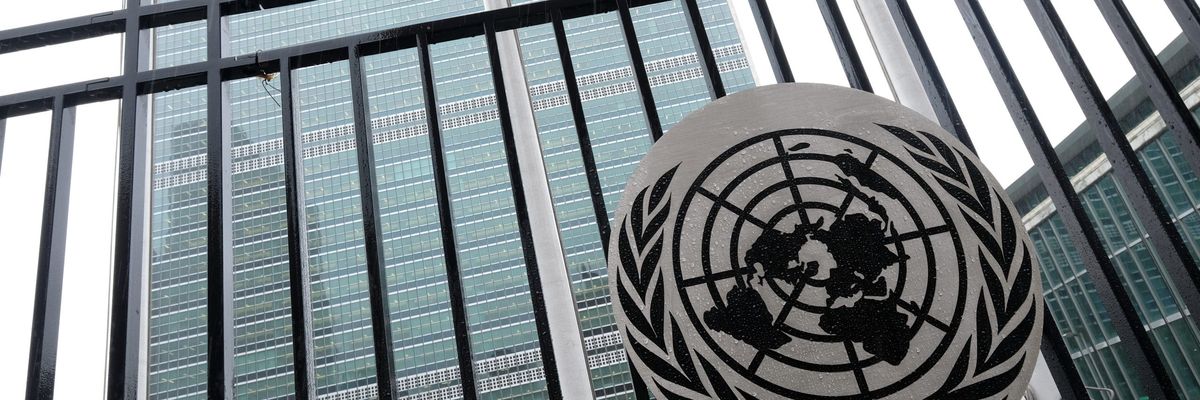In July 2001, I sat with 17 other independent human rights experts to finalize General Comment No. 29 by the United Nations Human Rights Committee, a document that addresses the legitimate right of states to declare a state of emergency when there is a crisis that threatens the life of the nation.
Applying the International Covenant on Civil and Political Rights, this document recognizes the right of a state unilaterally to derogate from some, but not all, of its human rights obligations to respond to an emergency situation. Importantly, it then presents a coherent and consistent line of reasoning to defend the principles of normalcy, necessity, proportionality, and respect for non-derogable human rights, as well as for the essential dimensions of other human rights. It speaks for resisting panic and for taming emergency powers, instead of usurping them for political ends.
Little did we know that only six weeks later came 9/11, a day that changed the world as we living in the West knew it. What followed was an unprecedented human rights backlash when governments went to “war” against terrorism, introduced draconian and sometimes even retroactive laws against terrorism, and mobilized the United Nations — above all its Security Council — behind their efforts.
While the threat of terrorism was and remains real, much of what was done in the immediate aftermath of 9/11 — and by and large has become normalized over the two decades that followed — has been unnecessary and disproportionate. Human rights violations in the name of countering terrorism, from torture to privacy intrusion, became widespread. Western governments that previously had wanted to be seen as representing the high moral ground, were either involved or went silent.
The human rights world did fight back. We issued warning after warning, called for human rights assessments, tried to explain how counterterrorism that respects human rights would be the most effective. There were defeats, such as the Security Council’s Counter-Terrorism Committee initially refusing to include human rights in its country assessments.
But there were also victories, like the creation of the mandate of the U.N. Special Rapporteur on human rights and counterterrorism in 2005, or the adoption by the General Assembly of the Global Counter-Terrorism Strategy in 2006, that includes human rights both as one of its four pillars and as a cross-cutting issue in the other pillars.
Since then, there has been a lot of impressive lip service to complying with human rights, but also a great deal of recurring human rights violations in the name of fighting terrorism. Gradually, activities named as counterterrorism have expanded at the United Nations, fundamentally transforming the organization, to a degree that its lofty ideals, including human rights, are being marginalized and their resources depleted. The creation of a new U.N. Office of Counterterrorism in 2017 is a significant milestone in this mission creep over two decades. This tendency results in the securitization of U.N. activities and programs, in the subordination of specialized agencies to the counterterrorism agenda, in an expansion of the targets from actual terrorism to other politically unwanted phenomena such as “radicalization” or “extremism” and to the sidelining of human rights.
International NGO Saferworld has just published an impressive report that provides a wealth of evidence and a set of useful recommendations for anyone who is interested in the grave threat to the U.N. of counterterrorism trumping everything else. In particular, I find valuable insights in its second subset of recommendations, including: to undertake a full system-wide review of all terminology related to counterterrorism and countering and preventing “violent extremism”; to strengthen oversight over all U.N.-supported, in-country counterterrorism and counter-extremism programming; to create a body to monitor day-to-day U.N. counterterrorism activities to ensure no harm is being done in the U.N.’s name; and to invest in safeguarding U.N. peace, development and human rights work from the risks of counterterrorism.
These are good proposals that deserve the support of human rights, peace, and humanitarian communities, prepared and committed to work to achieve them in collaboration with U.N. leadership.
Today, the deadly COVID-19 pandemic has triggered official states of emergency in many parts of the world and overt or de facto derogations from human rights in many more countries. While the fight against the pandemic continues, human rights voices need to speak out loud, and they need to be listened to.
It does not come as a surprise that the U.N. Office of Counter-Terrorism is now engaged in intensive diplomacy to co-opt the global effort to fight the pandemic and subordinate it to counterterrorism, by organizing a “virtual counterterrorism week.” This new level of mission creep needs to be resisted and stopped.
The fight against COVID-19 must be human-centred, starting from the right to life of every human being and proceeding to devising strategies that represent a holistic approach to promoting and protecting all human rights of all persons. The work of U.N. specialized agencies, above all the World Health Organization, must not be subordinated to the aspirations of those who want to hijack the U.N. to serve their counterterrorism politics irrespective of everything else.
















